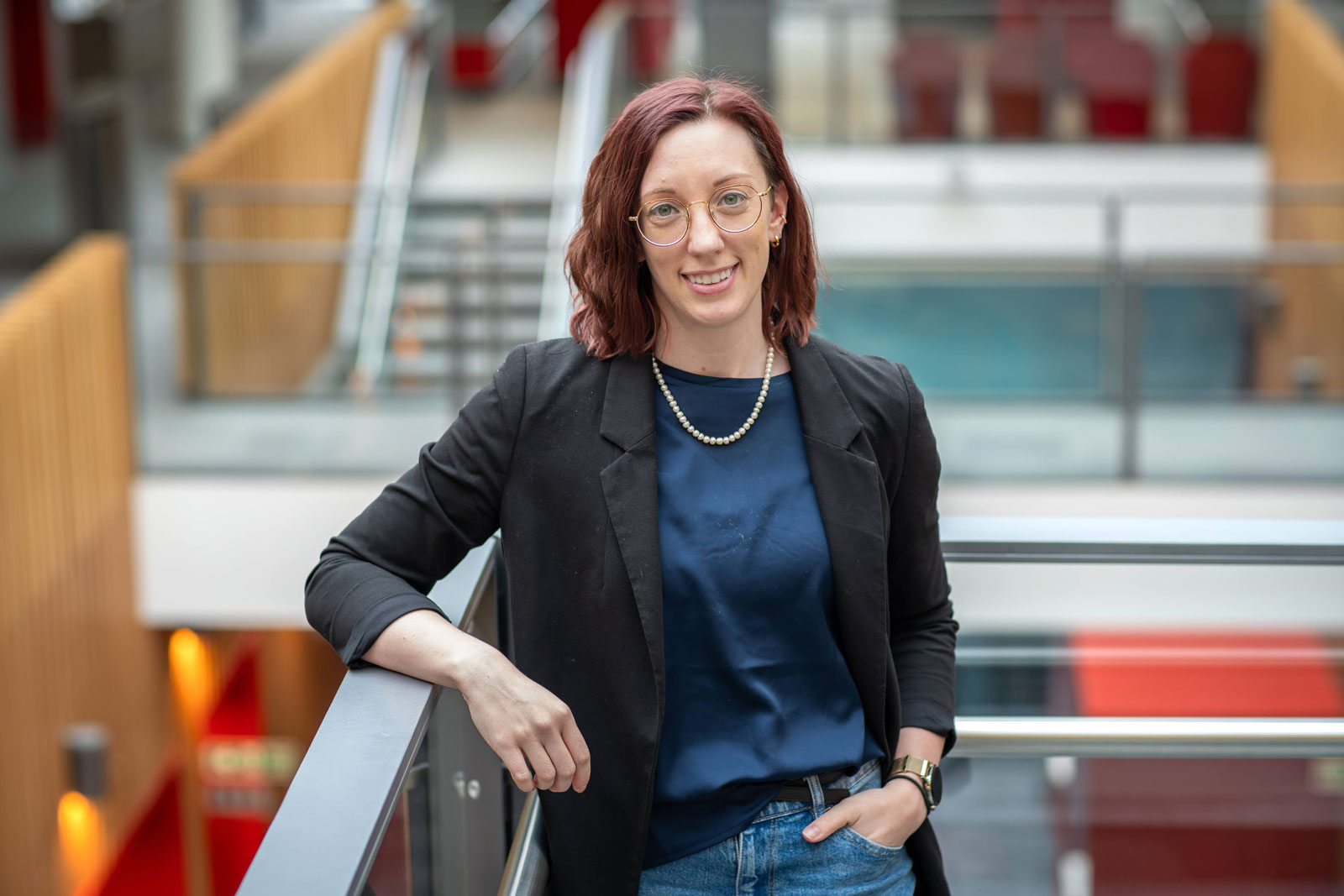LATROBE, PA – Mallory Freeberg, C’09, describes herself as a connector—someone who is good at fusing ideas and building bridges between diverse people. That trait is helping her excel as team leader for human genomics at the European Molecular Biology Lab-European Bioinformatics Institute (EMBL-EBI).
Freeberg, who is based in Cambridge, England, manages teams of about two dozen bioinformaticians and software developers from around the world. She manages the delivery of open data resources such as Ensembl, a bioinformatics project that organizes biological information for the study of human health, and DECIPHER, a web-based database for enabling the diagnoses of rare diseases.
“Simply put, my job helps other scientists do their research,” Freeberg said. “That’s reflective of what science is—collaborating, bringing in new ideas and including those ideas. If I can connect two people with similar interests or complimentary skills and they go off and do something interesting together, that's very rewarding to me.”
As she worked toward her bachelor’s degree in bioinformatics at Saint Vincent, Freeberg took two upper-level biochemistry classes taught by Dr. Matt Fisher. She and the professor have kept in touch over the years.
“It’s been really neat to watch her career blossom and see her end up in significant leadership roles within the scientific community,” Fisher said. “One thing we’ve talked about is the idea of science as a service. She’s trying to serve the larger scientific community by connecting researchers with databases and tools that allow them to make sense out of their data. That makes an enormous difference.”
Databases such as the Cancer Genome Atlas and the Human Genome Project hold the key to unlocking significant medical and scientific advances. As those data banks become more detailed and complex, the need for easy, effective access has grown exponentially.
“How that data gets managed, how it is archived and how it can be accessed by others is critically important,” Fisher said. “If we're going to make progress in terms of understanding things like cancer, diabetes or mental health issues, we need to look for themes and patterns in these enormous data sets. That's not a trivial undertaking.”
It’s a long way from Indiana, Pennsylvania, Freeberg’s hometown, to Cambridge. Her journey included stops at Saint Vincent College (where she majored in bioinformatics), the University of Michigan (where she earned a doctorate), and Johns Hopkins University (where she conducted postdoctoral research).
“Every step was a bigger jump,” Freeberg said. “Then I made the move across the ocean [to England] with my husband, who's also in science. It’s nice to sort of have a ‘partner in crime,’ and we're doing it together.”
In elementary school, Freeberg blew through all the basic math courses and was fast-tracked to advanced-level lessons. By the start of her senior year of high school, she’d already passed every course in the math curriculum.
“My last year in high school, I was put in a room for one class period every day with a calculus [level] 2 book, and was told, ‘Here, just study on your own,’” Freeberg said with a laugh. “That’s also when I took an advanced biology course and realized I could use math to understand complex biological questions. This played really well into the natural curiosity I have for the world around us.”
The father of one of her friends told Freeberg about an emerging field called bioinformatics that combines biology, math and computer science. Intrigued, Freeberg searched for a college that offered a bioinformatics major and discovered Saint Vincent.
During her first three years at Saint Vincent, Freeberg was the College’s only bioinformatics major. “When I enrolled, they had just hired Dr. Michael Sierk to lead the program,” she said. “He and I were kind of trailblazing together, which was fun. I remember all my professors being very supportive, understanding that I was sort of pioneering-slash-guinea pigging this new program.”
That willingness to be a groundbreaker helped Freeberg launch her career. It continues to pay dividends as she settles into her role at EMBL-EBI. She reminds herself of that whenever she walks into a meeting and finds she sometimes is the only woman or American in the room.
“It can be intimidating, especially as a woman, but having the courage to put myself in those situations is important,” Freeberg said. “One thing I would definitely tell anyone, not just those in science, is to take advantage of opportunities. Even if you're not sure about something, try it. Apply for that internship you think you might never get. Go after that job.”

Mallory Freeberg (photo credit: Jeff Dowling/EMBL-EBI)